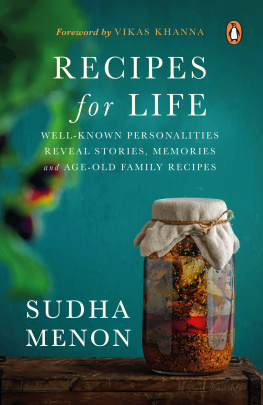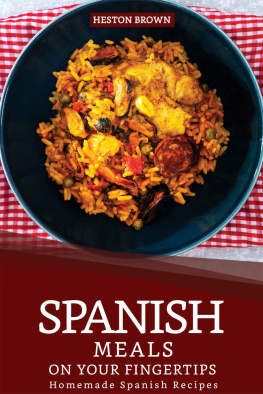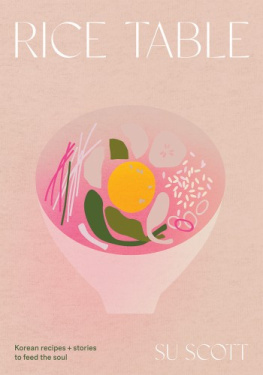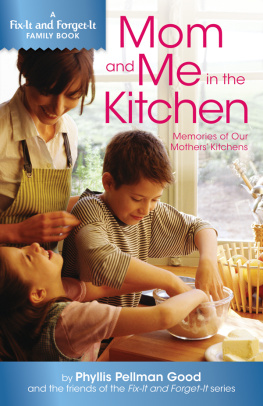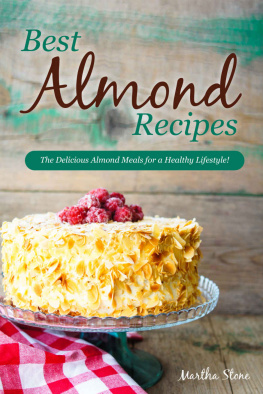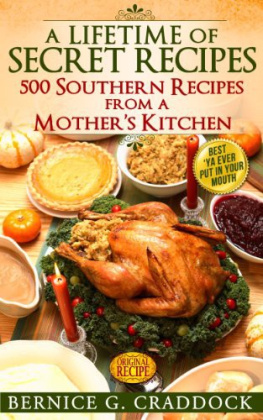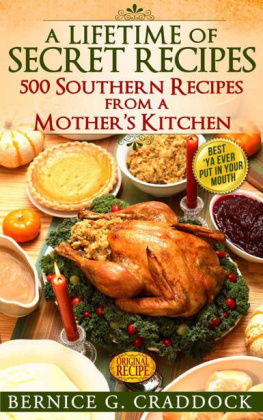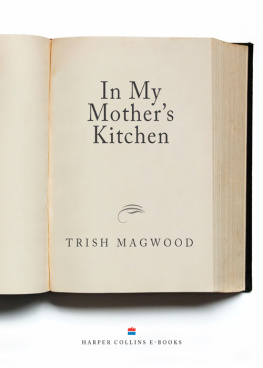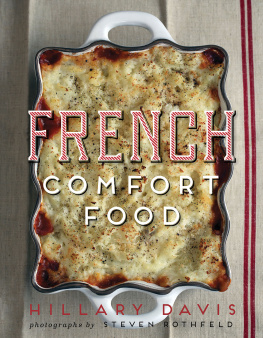ADVANCE PRAISE FOR THE BOOK
As a professional chef, I draw inspiration from my mothers recipes every day and base my own cooking on what I grew up eating. Knowingly or unknowingly, our mothers cooking, including its familiarity, comfort and methods, becomes a reference point as we start our own culinary journeys. A book like this is the best gift to our familiesand indeed to ourselvesas it not only documents the recipes, the methods and the ingredients of our favourite dishes but also preserves associated memories, thereby allowing us to relive precious moments in our lives. Naren Thimmaiah, executive chef, Vivanta, Bengaluru
With this book, Sudha Menon brings to the fore a very important aspect of our lives, our heritage through food. In spite of being the most documented (think phone cameras) generation till date, we have lost touch with what makes us who we are. This book addresses that missing link. Read it, you wont regret it.Parvana Boga Noorani, author and food writer
What is so unique about the food cooked by our mothers? Do we love her food because she is the worlds best cook? That may not be true but the food our moms cook for us is like a warm hug. When we go away from home, live alone and feel homesick, we think of maa ke hath ka khana. Sudhas book brings out the delicious stories of mothers and the food they cook, and the stories are narrated most delightfully.Sadaf Hussain, chef and author
The stories that make up this book are a much-needed salve of warmth in an increasingly fragmented life. This is an invaluable documentation of day-to-day life in India. The recipes can add oodles of joy to your kitchen.Kalyan Karmakar, author of Travelling Belly, and food blogger
What I love about this book is that it shows the unity and diversity of Indian food. More importantly, it highlights the fact that in a world and at a time where family bonds are becoming more and more strained with distance and children growing up in different cultures, it is clear that food is often the glue that keeps these bonds alive.Karen Anand, author and food entrepreneur
To my mother, Pramila Radhakrishnan, who raised me with an abundance of love and the tastiest morsels ever.
You can prepare the tastiest meal with just water, salt, a couple of onions and some chillies. The most important ingredient in food is the love you cook it with, you always say, Amma, and I know now that it is true.
AUTHORS NOTE
Sitting in a corner of the spice shelf in my kitchen is a bottle with aais khichadi masala written on it in her familiar, now fading, handwriting.
Aai, my mother-in-law, handed it over to me one winter afternoon when I visited her, and I still remember what she said: Prashant la moogachi khichadi karoon de. Tyala khoop avadte [Prepare moong khichadi for Prashant with this masala. He loves it].
Aai passed away a few months after that from the ravages of dementia. When I opened the bottle a couple of months ago, the masala was as aromatic as it was all those years ago, but I could not bring myself to use it for fear it would get over and with it would go the last memory of her. One of my biggest regrets is that neither I, nor anyone else in the family, ever wrote down any of her recipes because we simply presumed she would always be around to feed us with love. And now, her culinary legacy is gone with her, lost forever.
Over the last few years, my sisters and I have been discussing taking down Ammas recipes so that her grandchildren and those who come after them are able to enjoy the legacy she leaves behind. We worry that it is already too late because Ammas memory is not the same any more.
While her anecdotes about family recipes learnt under the loving supervision of her trio of aunts in Kerala and from her mother-in-law were razor sharp just four years ago, she now struggles to remember the ingredients and methods of preparing her favourite dishes with which she pampered us.
I have heard this story countless times from friends and acquaintancesstories of women from Ammas generation, fabulous, talented cooks who passed on and could not leave their culinary legacy behind. I decided then that I would put this book together so that we could capture much-loved family recipes and enjoy cooking the dishes in our kitchens.
As a teenager, I remember refusing to enter the kitchen to learn even the rudiments of cooking. It was only when I became a young mother that I started my own journey of cooking. But now, when my daughter, a talented pastry chef, comes visiting, I enjoy spending time with her, cooking up a couple of Ammas dishes. There is a special magic that happens over the comfort of a shared meal, garnished with laughter and endless love.
This book is a celebration of the bonds that we forge with our mothers and those who cook with love for us. It is for a reason that we say that maa ke haath ka khaana is the best meal in the world and a recipe for life.
Sudha Menon
July 2021
FOREWORD
The true meaning of culture is based on the rituals of continuity. From small traditions and ceremonies to big festivals, culture binds us all. It gives the nation a shared identity.
For me, Indias true fabric lies in these traditions. Growing up in a middle-class family in Amritsar, I was surrounded by them every day for almost thirty years. When I moved to the US in 2000, I started missing these traditions and realized their importance. This holds true especially now when we are all dispersing in our quest for individuality.
In many homes, the kitchen is the temple of stability and togetherness. The food that gets cooked there and the recipes are part of our identity.
In a country where generations of mothers have passed down age-old family recipes to their daughters, daughters-in-law and, indeed, to their sons by word of mouth, this book was waiting to be written.
I have always said this: We love and cherish the food that our mothers raised us with. No matter where we travel to or how many sophisticated restaurants around the world we dine at, we always want to come home to the food we grew up eating.
As a little boy, growing up in Amritsar, I watched my mother cooking in the kitchen along with my biji (grandmother), both of them working in tandem. They bonded over pots of bubbling curries and the sizzle of tempering, each recounting stories of food from their respective homes.

